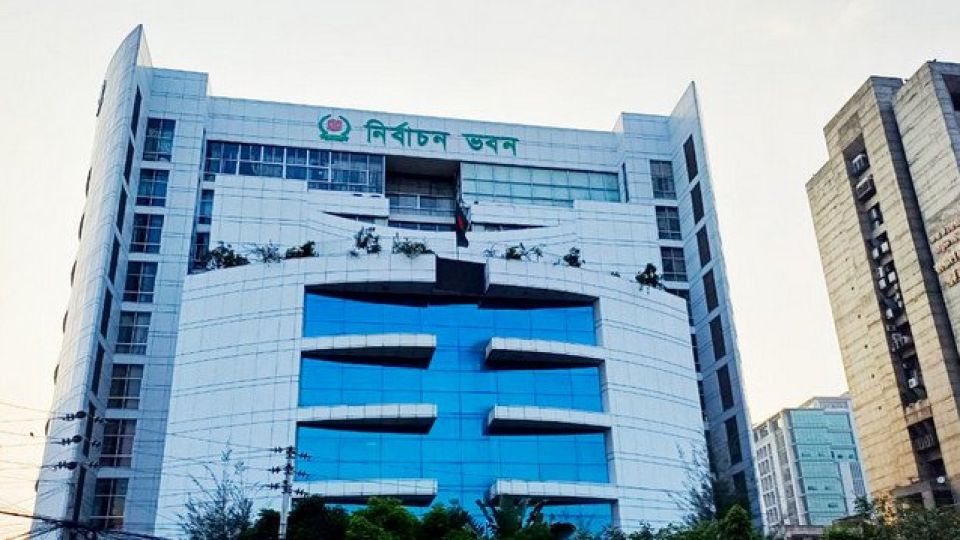October 26, 2023
DHAKA – The Election Commission is making all-out preparations to hold the polls in January, though some crucial political and administrative issues still remain unresolved.
The 90-day countdown to the 12th parliamentary election begins in a week, but the political stalemate over the nature of the polls-time government has yet to end.
In its work plan for the election, the EC has identified “gaining political parties’ confidence” as a major challenge. But with time running out, the commission has made little progress to that end.
Besides, it is still indecisive about the timing of sending the ballot papers to the polling stations.
The EC is in favour of sending the ballot papers on the election day morning to prevent possible ballot stuffing on the night before. But some police and administration officials are opposed to this idea due to the enormous logistical challenge involved.
The decision about appointing EC officials as Returning Officers also remains pending.
“We will decide on the issue of appointing Election Commission officials as Returning Officers before the announcement of the election schedule. The issue of sending ballot papers to the polling centres will be finalised in due time,” Election Commissioner Anisur Rahman told The Daily Star.
Against this backdrop, majority of the five election commissioners considers that the expected environment is still not there for holding a free, fair, participatory, and festive election as the political parties have not yet resolved their differences about the election-time administration.
In a concept note prepared for a workshop with journalists to be held today, the EC observed that the issue of the polls-time government is a political decision in which the commission has no role to play.
In its effort to bring different political parties on the discussion table, the EC is planning to hold a two-day workshop with all the 44 registered political parties early next month. It will be a multi-party workshop, meaning a number of political parties will be invited for discussion together although a detailed plan has not been finalised yet, a top official of the EC secretariate told The Daily Star yesterday.
“Our preparations for holding elections are going on in full swing. We will have to conduct the election in line with the constitution. There is no scope for turning back from election even if there is no political agreement,” Anisur Rahman said.
“But we hope there will be a political settlement,” the election commissioner told this newspaper.
Under the constitutional provision introduced in 2011, national elections must be held within 90 days before the five-year term of parliament expires.
The current parliament expires on January 29. The 90-day countdown starts on November 1.
The commission is likely to announce the schedule next month, and the election is likely to be held in early January 2024.
However, two biggest political parties – the ruling Awami League and opposition BNP – stick to their guns on the election-time government.
BNP wants a caretaker government to oversee the election, while the Awami League says the election will be held under the current government as per the constitution.
BNP insists elections under the current administration will not be free and fair.
“BNP will not join the election unless held under a nonparty, neutral election-time government,” BNP Standing Committee Member Amir Khasru Mahmud Chowdhury told The Daily Star yesterday.
For the last couple of months, both parties have been holding rallies and counter-rallies across the country to show their strengths.
Although BNP is still on the streets, AL chief Sheikh Hasina started her party’s polls campaign on August 2 in Rangpur.
Asked what will happen if BNP does not join polls, Anisur said, “It’s too early to tell if a situation like 2014 will recur. If anything like that happens, actions will be taken accordingly.”
The upcoming election is likely to be more challenging as the last two elections in 2014 and 2018 were heavily criticised by election observers, opposition political parties and analysts.
BNP and several other political parties boycotted the 2014 election. As a result, 153 out of the 300 lawmakers were elected unopposed. The 2018 election was participatory, but BNP and other opposition parties allege ballot stuffing happened the night before the election day.
In July last year, the EC held dialogues with political parties aiming to prepare its working plan for 12th national polls. BNP and eight opposition parties skipped the talks, saying they do not think the commission will be able to hold a free, fair, and participatory election.
In March this year, Chief Election Commissioner Kazi Habibul Awal sent a demi official letter to BNP, inviting the party for an official or unofficial discussion on the polls. But BNP did not respond, said Anisur Rahman.
Two election commissioners and several EC officials said they are preparing for the election keeping in mind that BNP and several other parties may boycott the vote.
As part of the preparation for the election, the EC has redrawn 10 constituencies, registered two new political parties, updated the voters’ list, and made a primary list of 42,350 polling centres. Amendments to an electoral law have also been made. The EC has approved 67 local observers to monitor the polls and sought applications from international observers and journalists.
Former election commissioner Brig Gen (retd) Sakhawat Hossain said there is a lack of coordination among the election commissioners.
“I don’t understand how they will conduct the election as some major parties are not willing to participate in it,” he told this newspaper last night.
“They can’t get away by saying that ‘we can’t do anything’. For long, we have been saying that the Election Commission can talk to the political parties. Time is running out. They can still hold talks with political parties and listen to them. After that, if they feel they can’t do it, they can tell the government that there is an absence of conducive environment for the election,” he noted.


